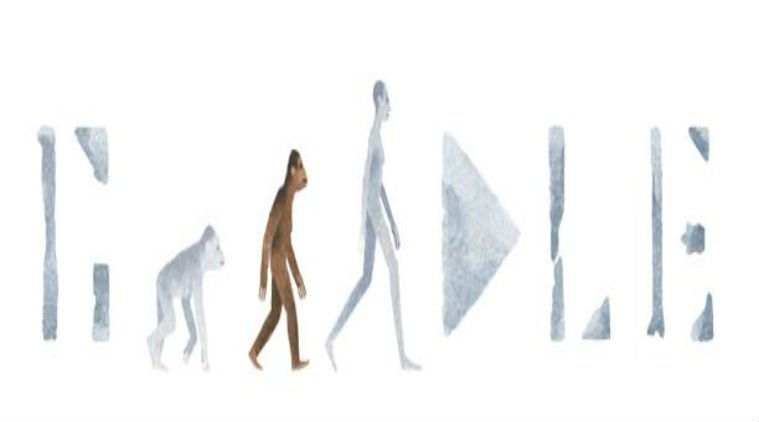Google Doodle on Tuesday celebrates the 41st anniversary of the discovery of ‘Lucy’, a name given to skeletal fragments of primate (family) Australopithecus afarensis species which existed 3.2 million years ago.
This is the species which sheds some light on the way homo-sapiens have evolved from apes.
Discovered on November 24, 1974 by a team of scientists – Yves Coppens, Maurice Taieb and Donald Johanson – in Ethopia near a village called Hadar. The discovery was named after the Beatles song “Lucy in the Sky With Diamonds” which was playing on the tape recorder while the scientists reveled in their victory.
Discovery of Lucy was unique because the skeletal fragments were not wholly damaged like others which were found during the time. In fact, they were nearly 40 per cent intact which helped scientists learn extensively about human evolution. Also, they deduced it was a female after studying her pelvic structure. Later, fossil discoveries established that Australopithecus afarensis males were quite larger than females.
Though Lucy had long arms and a protruding belly, suggesting she had more characteristics of a chimpanzee, the skeleton showed she walked upright. According to a National Geographic report, her wisdom teeth, which were very human-like, were exposed. “In addition, the sections of her skull — separated in children — had grown together,” the report added.
At present, Lucy’s remains are conserved in Ethiopia, although they toured the United States from 2008 to 2013. Interestingly, President Barack Obama visited the museum in Ethiopia where the remains are kept during his visit to Africa earlier this year and was even allowed to touch them, which is usually reserved for scientists only.
Today’s doodle shows a walking Lucy placed between an ape and a human pointing to the fact that Australopithecus afarensis bridges the gap between the two.
“To recognize the 41st anniversary of this historic moment, Kevin Laughlin has brought Lucy and her upright gait to life on our homepage,” writes Google.
Source: google

